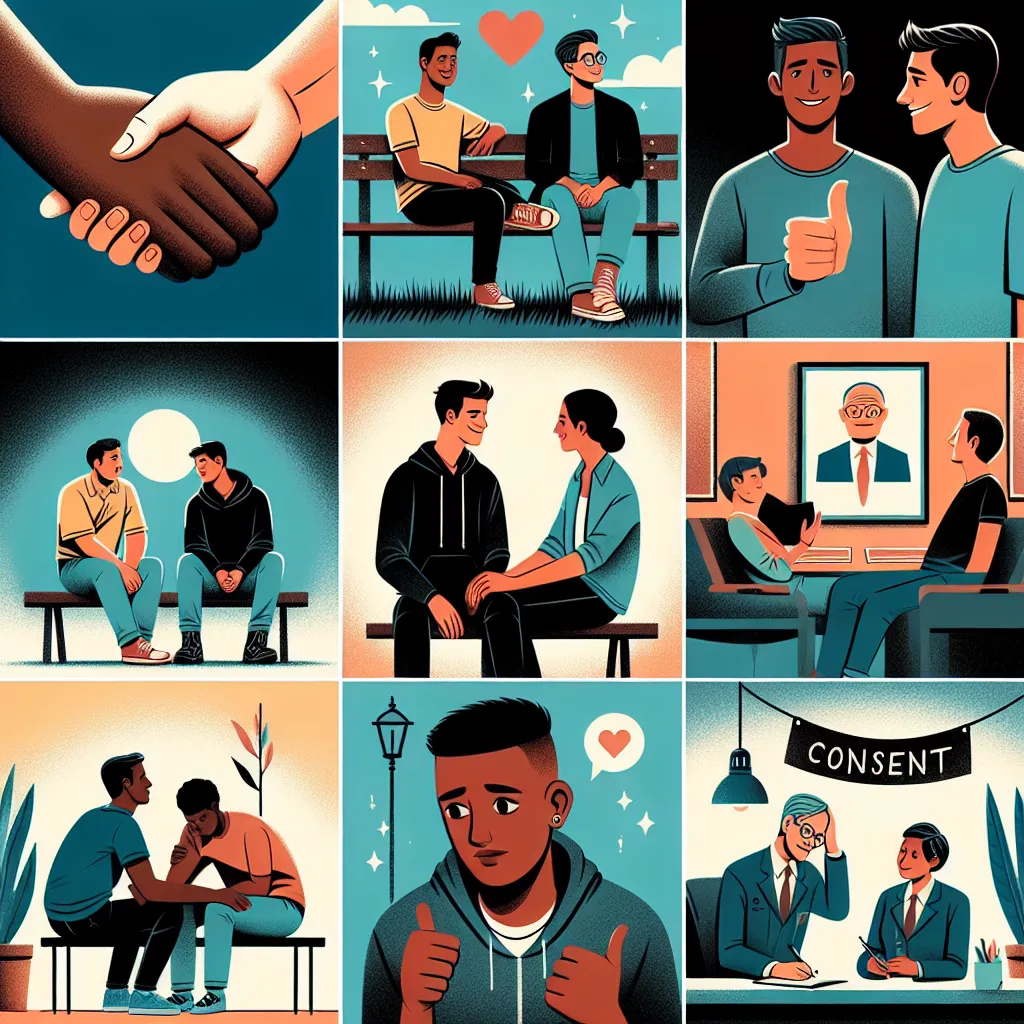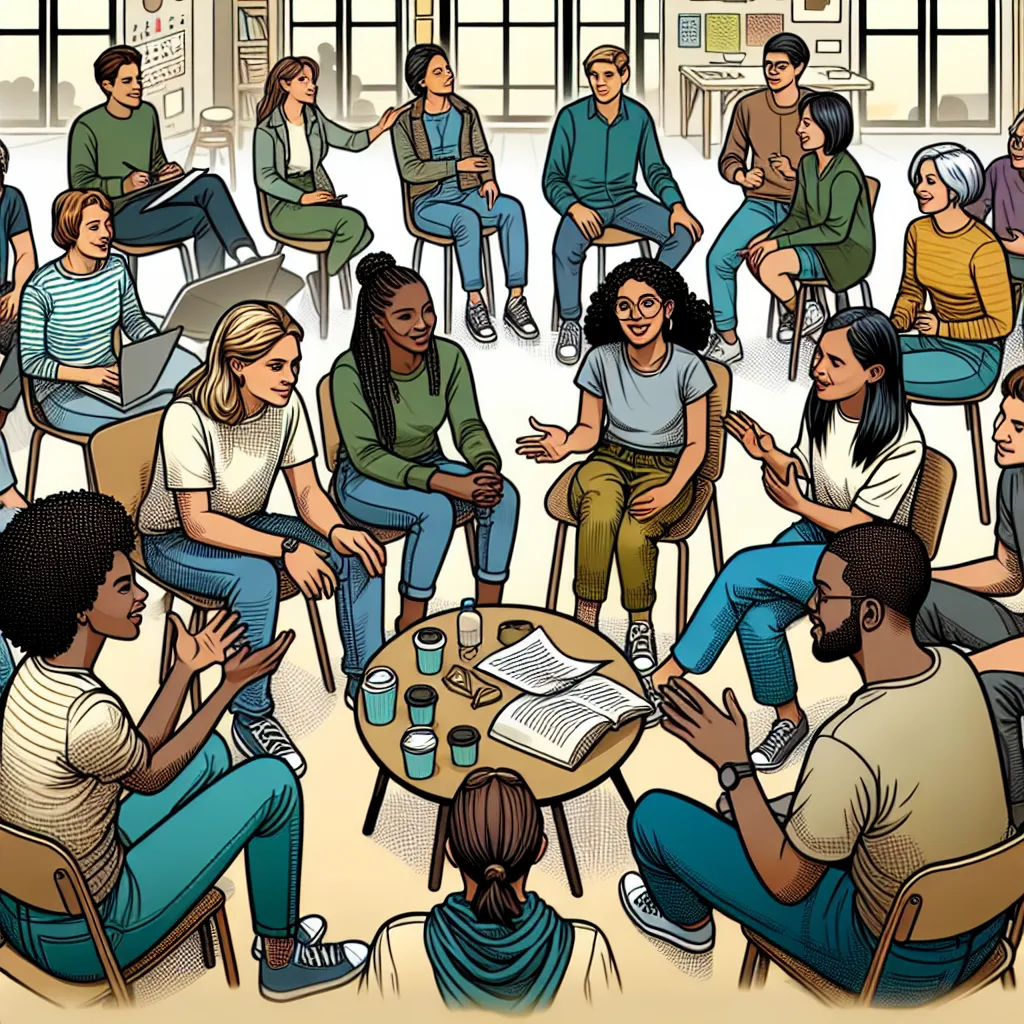Ask AI on The Internet
Question: What is affirmative consent? Give two examples of sexual harassment. In a small group, review strategies for preventing sexual harassment. Identify which strategies each of you prefers to use. What is sexual assault? Choose one area of health and explain how sexual assault affects it.
### Affirmative Consent Affirmative consent means that all parties involved in a sexual activity clearly and voluntarily communicate their willingness to participate. It is an active, informed, and enthusiastic agreement, rather than silence or the absence of a "no." Consent must be ongoing throughout any encounter and can be revoked at any time. ### Examples of Sexual Harassment 1. **Verbal Harassment**: Making unwelcome comments about someone's appearance, body, or sexual activities. For example, repeatedly making sexually suggestive jokes or comments about a coworker’s appearance. 2. **Physical Harassment**: Unwelcome physical contact, such as touching, patting, pinching, or brushing up against someone in a sexual manner. For example, a manager sliding their hand on an employee’s back or shoulder in a way that feels uncomfortable and inappropriate. ### Strategies for Preventing Sexual Harassment When discussing strategies for preventing sexual harassment in a small group, consider these approaches: 1. **Education and Training**: Conducting regular training sessions on what constitutes sexual harassment and how to address it. 2. **Clear Policies**: Establishing and communicating clear policies and procedures regarding sexual harassment. This includes outlining how to report incidents and what the investigation process will entail. 3. **Support Systems**: Creating a safe and supportive environment for victims to come forward, including providing access to counselors or support groups. 4. **Bystander Intervention**: Encouraging and training individuals to speak up or intervene when they witness inappropriate behavior. 5. **Inclusive Culture**: Promoting an inclusive and respectful workplace or community culture where everyone understands and values boundaries. Each person in the group might prefer different strategies. For example, one person might prioritize bystander intervention, while another might focus on the importance of clear policies and support systems. Discussing these preferences can help develop a multifaceted and robust approach to prevention. ### Sexual Assault Sexual assault is any non-consensual physical contact or behavior of a sexual nature. This includes acts such as rape, attempted rape, groping, or any other unwanted physical touching of a sexual nature. Sexual assault can occur between strangers, acquaintances, friends, or intimate partners. ### Impact on Mental Health Sexual assault can have profound and long-lasting effects on mental health. Some of these effects include: - **Post-Traumatic Stress Disorder (PTSD)**: Survivors of sexual assault may experience symptoms such as flashbacks, severe anxiety, and uncontrollable thoughts about the event. - **Depression**: Many survivors suffer from chronic sadness, loss of interest in daily activities, and feelings of hopelessness. - **Anxiety Disorders**: Issues such as panic attacks, generalized anxiety, and intense fear of situations that trigger memories of the assault. - **Substance Abuse**: Some individuals may turn to drugs or alcohol as a coping mechanism to deal with the trauma. - **Suicidal Thoughts and Behaviors**: The emotional pain from sexual assault can lead to thoughts of self-harm or suicide. Addressing the mental health impacts of sexual assault involves interventions such as counseling, therapy, support groups, and sometimes medication, with the goal of helping survivors heal and regain a sense of normalcy.
Think your answer is better than the AI's? Post it below.
Other Most Relevant Posts:
 1. Trust in Relationships
2. Understanding Consent
3. Signs of Unhealthy Relationships: Isolation
4. Seeking Help for Unhealthy Relationships
5. Confidence in Communication
6. Reciprocal Care in
1. Trust in Relationships
2. Understanding Consent
3. Signs of Unhealthy Relationships: Isolation
4. Seeking Help for Unhealthy Relationships
5. Confidence in Communication
6. Reciprocal Care in
 Ask AI: Explain two contributing factors of Unsafe sexual practices and substance abuse youth risky behavior
Ask AI: Explain two contributing factors of Unsafe sexual practices and substance abuse youth risky behavior
Question Tags
If you want your question answered by an AI, click here.





Post your own comment: